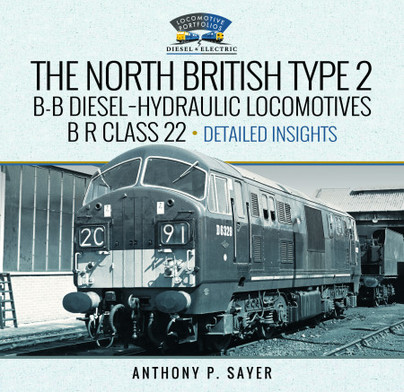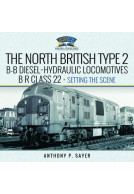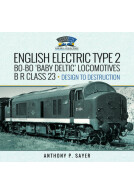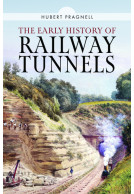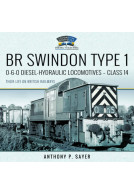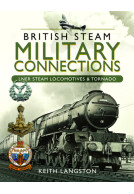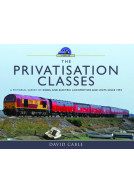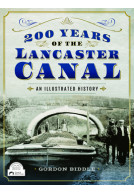North British Type 2 B-B Diesel-Hydraulic Locomotives, B R Class 22 - Volume 2 - Detailed Insights (Hardback)
Imprint: Pen & Sword Transport
Series: Locomotive Portfolios: Diesel and Electric
Pages: 192
ISBN: 9781399078276
Published: 18th July 2024
(click here for international delivery rates)
Order within the next 4 hours, 48 minutes to get your order processed the next working day!
Need a currency converter? Check XE.com for live rates
| Other formats available - Buy the Hardback and get the eBook for £1.99! | Price |
|---|---|
| North British Type 2 B-B Diesel-Hydraulic… ePub (63.2 MB) Add to Basket | £18.99 |
The British Railways ‘Pilot Scheme’ orders of 1955 included six North British Type 2 diesel-hydraulic locomotives, these being introduced during 1959 for use on the Western Region. Without operational experience, a further fifty-two locomotives were delivered between 1959 and 1962. The fleet survived intact until 1968, when half of the class was withdrawn due to declining traffic levels across the UK, with successive National Traction Plans progressively selecting the less successful, non-standard and ‘numerically-challenged’ classes for removal from traffic. All fifty-eight locomotives were withdrawn by New Years Day, 1972.
This book, the second of two, builds on the overview of the class provided in Volume 1, and makes extensive use of available archive material and the personal observations of numerous enthusiasts. Previously unpublished information, covering the performance issues of these locomotives, form a central focus, together with details of fire incidents and accidents. Liveries and detail differences are given in-depth treatment to illustrate that there really were reasons and a logical progression behind the complicated series of design modifications applied to the Class. Volume 2 concludes with sections on storage, withdrawal and final disposal.
"Now we have the second part of the history of this unloved class, and rarely has the reviewer seen so much detail included on every conceivable aspect of the careers of every example of this infamous class, whose arrival to eliminate steam in the West Country coincided with the loss of the local duties the were intended for.
Steam World - October 2024
The author has created quite a following by writing about failed early BR diesel classes and this is another important work. It is a combination of extensive personal research, with valuable material from the notebooks and cameras from those who stayed around after the end of BR steam. We all wonder what the next subject will be."
"Well I have just received a copy of this new Volume 2 and I must confess that I haven't seen this level of detail in any other diesel & electric publication............and I have quite a few! This series just gets better and better! The author is obviously very methodical in his approach and the level of research to obtain the finite detail that is portrayed go's beyond what has been previously published. Over the last sixty years I thought I knew quite a lot about BR diesels...........but obviously I still have a lot to learn and can do so quite easily with the added style and format of this publication.
RMWeb Forum by 'Brush Veteran' (Grahame Wareham)
Pen & Sword seem to have chosen a very relaxed style of format which allows for good photographic illustration within the text...whoever thought there would be two volumes for a class of 58 'unloved' diesel hydraulics."
About Anthony Sayer
ANTHONY SAYER is a life-long railway enthusiast with an interest in the history of the early British diesel and electric locomotive classes. This is the author’s sixth book in the “Locomotive Portfolio” series, following on from the North British Type 2 (Classes 21 & 29), the Metropolitan-Vickers Type 2 (Class 28), the Clayton Type 1 (Class 17), the BTH/NBL Type 1 (Classes 15 & 16) and BR Swindon Type 1 (Class 14: Their Life on British Railways) books published between 2019 and 2021. Anthony lives in the north-east of England and has now retired after 37 years in the steel industry with responsibilities in both transport planning and supply-chain logistics.







